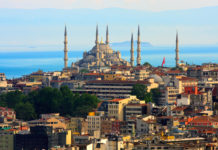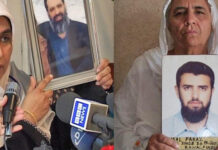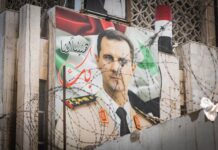In this post 9/11 world every conversation that Muslims have with each other or with non-Muslims is usually about Muslim suffering. But in spite of all the suffering there is some light in this current dark period of Muslim history, and I call this light the unintended consequences of 9/11, writes Dr Mohammed Ilyas.
The attacks resulted in increased religiosity among Muslims and conversions to Islam, and a renaissance in the Islamic sciences and arts. This coupled with “Islamophobia going mainstream” has produced a new type of Muslim mindset, characterised by resilience, education, steadfastness and political activity.
During my recent visit to Japan I saw clear signs of these “unintended consequences” blossoming; indeed Islam and Muslims are starting to call the “Land of the Rising Sun” home.
Japan for most Westerners and Muslims is a very modern country, technologically advanced and with a highly sophisticated culture. The country blends traditional Japanese social etiquette, social norms and architecture with high-end luxury consumerism in a way that is very distinct from any other countries that I have visited.
Like most countries – even those that see themselves as secular – religion is important in Japan, although not always obviously so. The two dominant religions are Shinto, which in the past has been used by the state for nationalistic purposes, and Buddhism. They are followed by other religions such as by various Christian dominations and Islam.
Japan’s historical links with Islam
The first reference about Japan in Muslim literature dates back to the 9th Century, during the reign of Abbasid Caliph al-Mutammid (869–885). Ibn Khordadbeh in his book Kitāb al Masālik w’al Mamālik (The Book of Roads and Kingdoms) mentions both Japan and Korea.
Subscribe to our newsletter and stay updated on the latest news and updates from around the Muslim world!
Ibn Khordadbeh was Director of Posts and Intelligence for the province of Jibal in northwestern Iran. Other accounts detail Arab merchants trading in Japan from the 16th century, as well as the Ottomans having diplomatic relations with the country.
But it was not until the 19th century that we see Muslims settle in Japan. These early Muslims were Turko-Tatars who fled their homeland during the 1917 Russian Revolution. They were given asylum and settled in a number of major Japanese cities.
Soon after, in 1935 the first Mosque was built in Kobe, while the Tokyo Mosque was completed two years later in 1938.
Since the Second World War there has been a lot of contact between the greater Muslim world and Japan through trade, economic migration and tourism. The Japanese government expects that the number of Muslim tourists will increase rapidly as it prepares to host the 2020 Olympic games.
As part of this preparation the restaurant industry has started to look into halal food. At the moment very few restaurants cater for Muslim dietary requirements, and those that do are either Indian or Turkish.
Contemporary Islam in Japan
Currently there are an estimated 120,000 Muslims in Japan and they are either economic migrants or students.
The Japanese Muslim community is culturally and ethnically diverse, as I found out during an iftar event that I attended in Tokyo Jamia Mosque. And like in Europe there is a growing community of ethnic Japanese converting to Islam.
The Jamia Mosque was a hub for many nationalities, as well as Sunni and Shia Muslims, which is sadly very rare in Britain. After iftar I took the opportunity to speak to some of the attendees, who included “born Muslims”, converts, as well as ethnic Japanese who were there to learn about Ramadan, Islam and Muslim cultures.
I spoke to male and female converts, some had been Muslims for over twenty years, while others were new, and had converted after 9/11. The latter converts became interested after hearing about 9/11 and subsequently started to research into Islam, while others had traveled to Muslim countries and had fallen in love with Muslim cultures.
These views were similar to those that I had heard from Muslim converts in Yokohama, a few days earlier. In the mosque I also spoke to a volunteer who was a Japanese citizen but of Bangladeshi decent. He told me that:
“We have a lot Japanese coming into the mosque, they are interested in Islam and Muslim cultures, they want to learn, they want to know Islam, they want to visit Muslim countries. I even took a friend of mine to Bangladesh a few months ago. You know we often run out Japanese translations of the Quran and other Islamic literature, at the moment we have no Qurans, the last one was sold one week ago.”
I asked him what life was like for Muslims in Japan. This was an important question because the country also has a large group of evangelical Christians and in 2012 a small group of Japanese Christians held a protest where they heckled Muslim demonstrators who were protesting against the blasphemous movie “The Innocence of Muslims” in Tokyo.
He replied by saying: “For us Muslims, Japan is a really good place, we have no problem from the government, the Japanese are friendly people, they are open, we have no problem with them. Look, I have been living here for over twenty years and we are a happy community and every year more and more Japanese convert to Islam. Just last like week a woman converted. I know in Europe it is different but then Japanese people are not like Europeans.”
A Muslim academic I met in Yokohama also told me that: “It’s easy for Muslims to live in Japan because the social etiquette of respect and tolerance of the Japanese people is in-sync with Muslim values and understanding of the world.”
Lessons from Japan
I have been to Japan a number of times but this was the first time I had taken time out to meet Japanese Muslims and visit a mosque.
And I took two important lessons from my Japanese experience. Firstly, Islam is gaining more adherents despite the negative media portrayal. Secondly, in spite of the current precarious state of intra-Muslim relations and differences between Muslims and non-Muslims there is hope.
If Muslims and non-Muslims want to live together in peace then this is possible and achievable. All it needs is for people to accept diversity and difference.
But if they do not then the future will remain precarious and possibly full of violence.











![24 Hour Road Trip Through Free Syria [Short Film]](https://5pillarsuk.com/wp-content/uploads/2025/02/IMG_5907-218x150.jpg)











